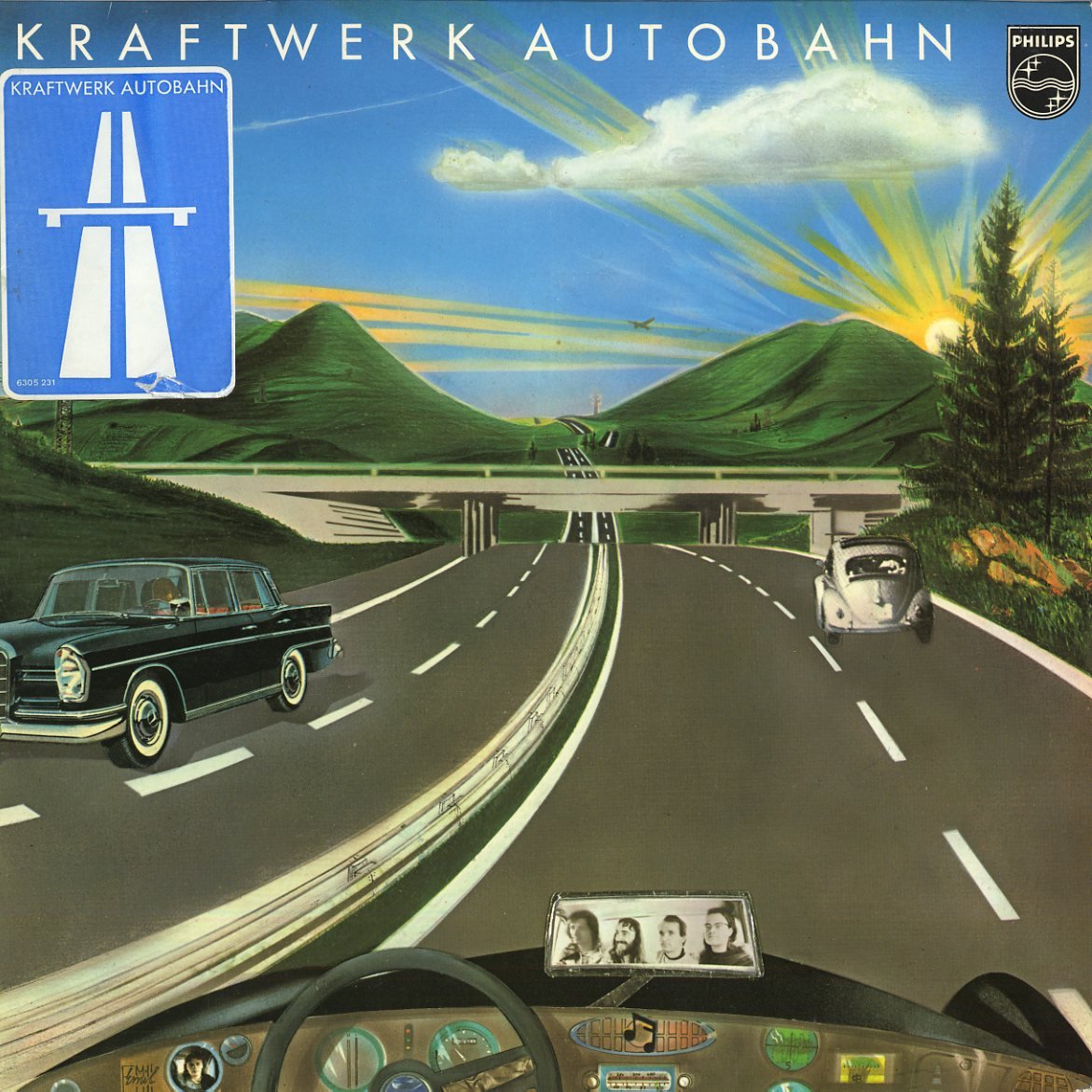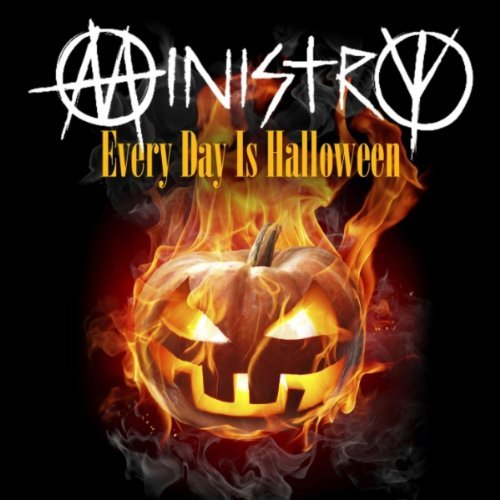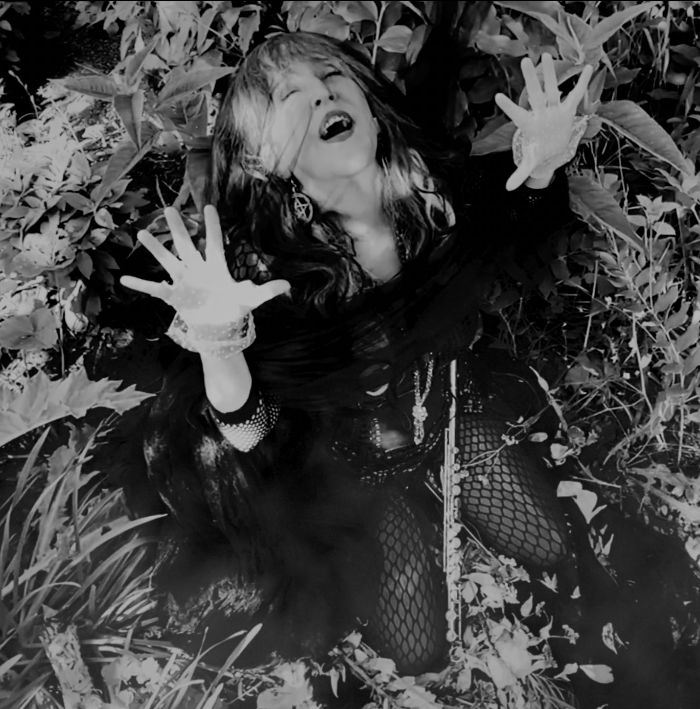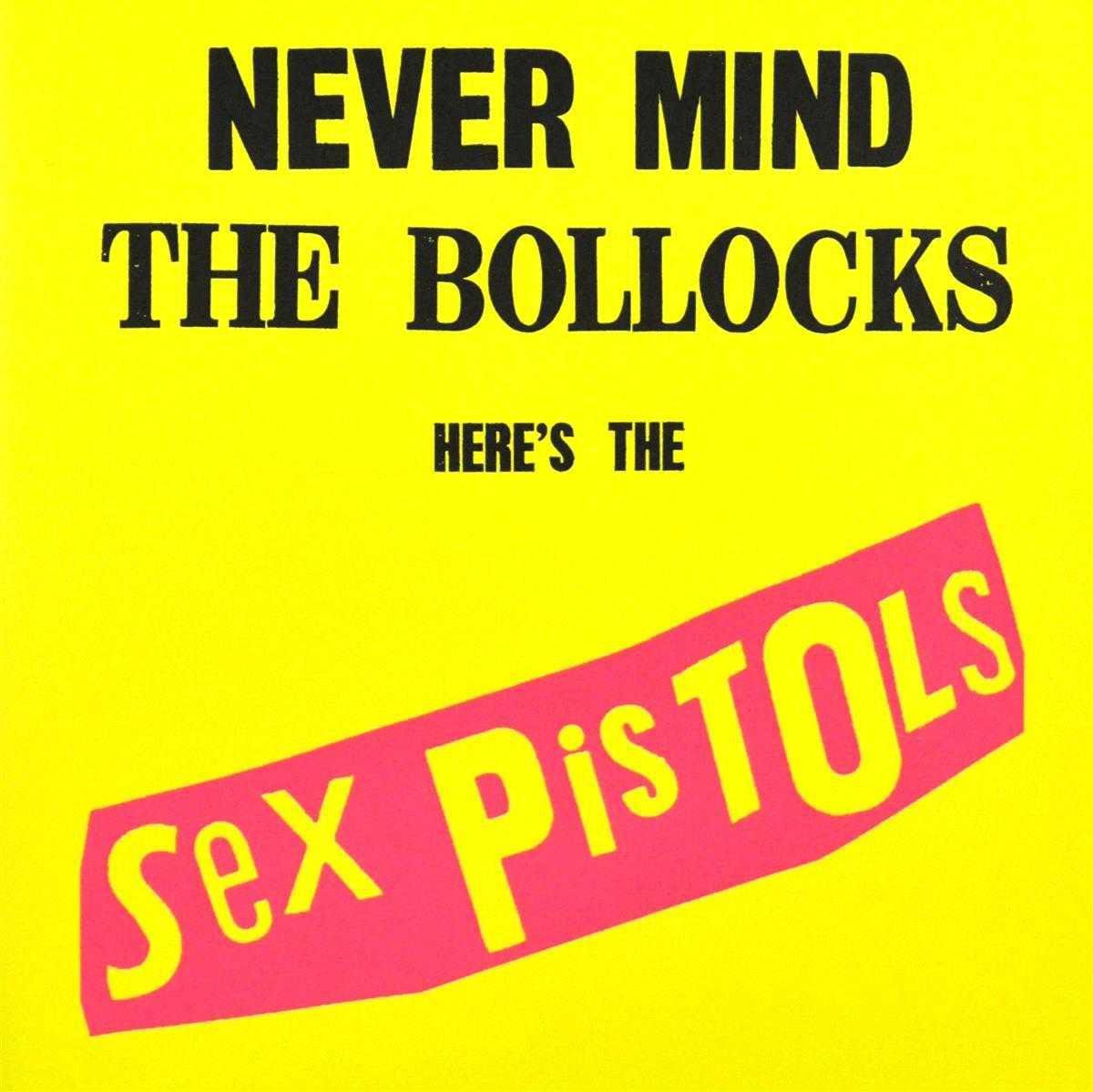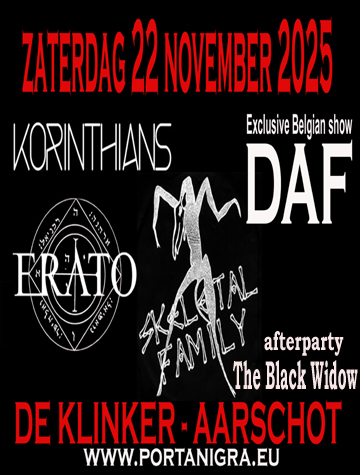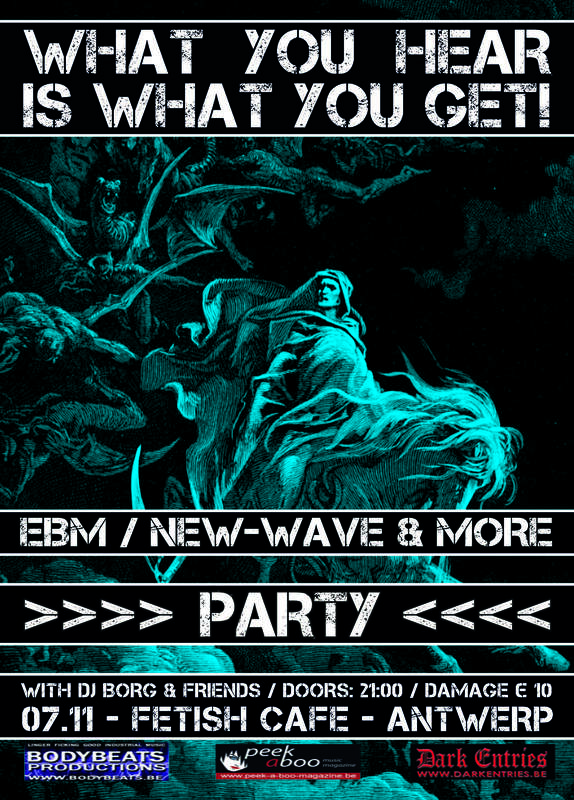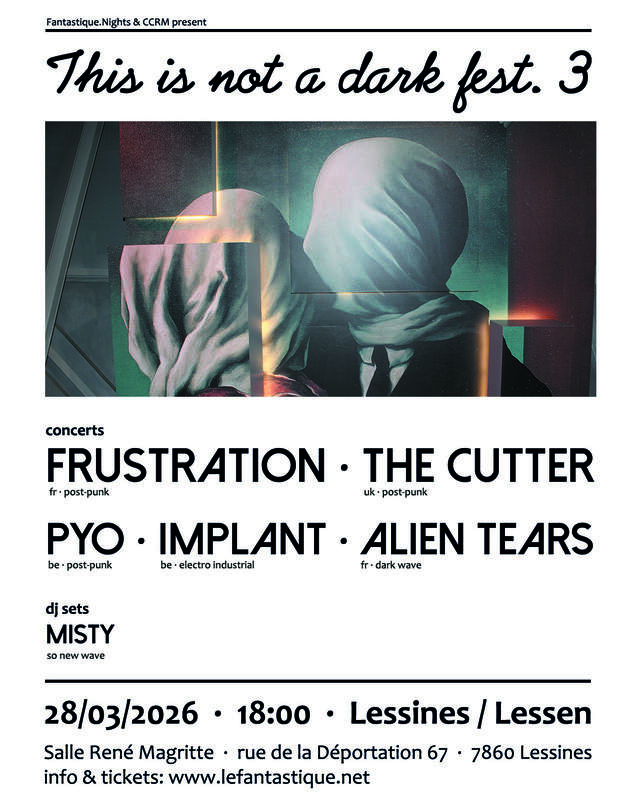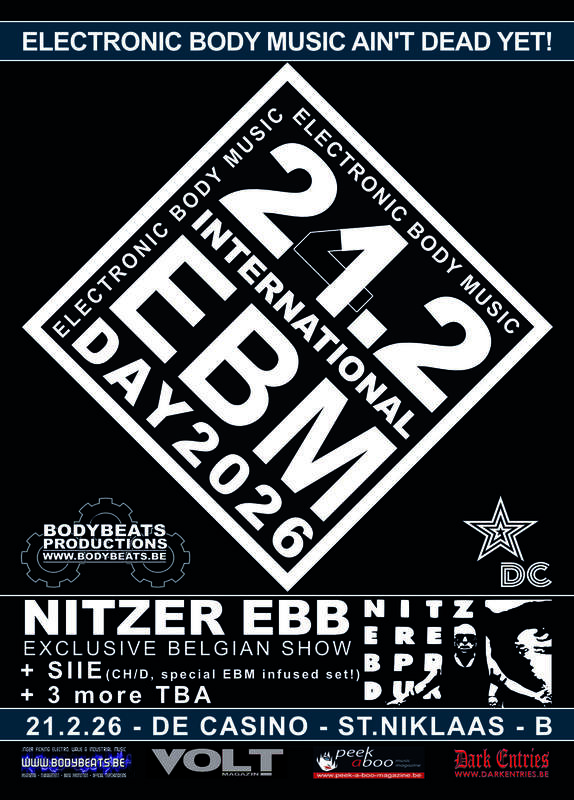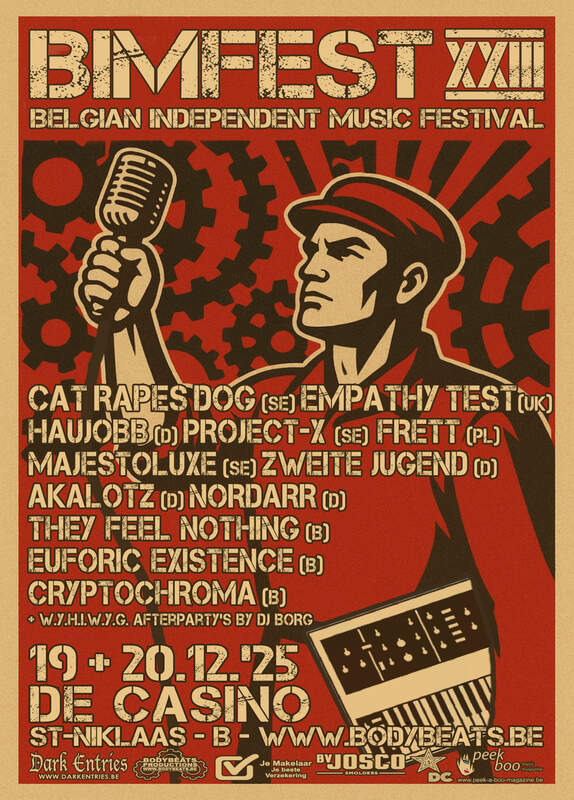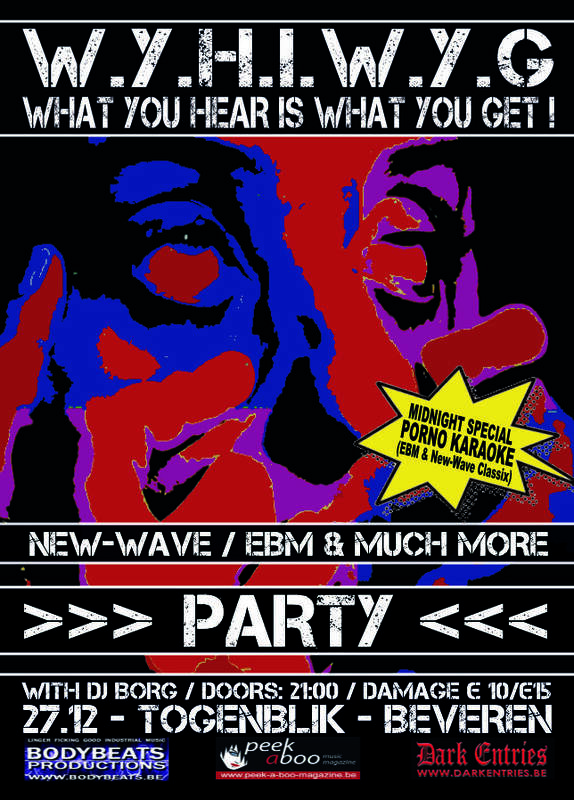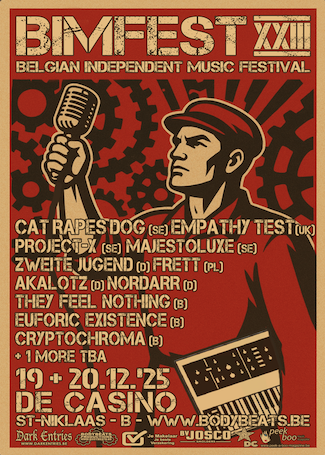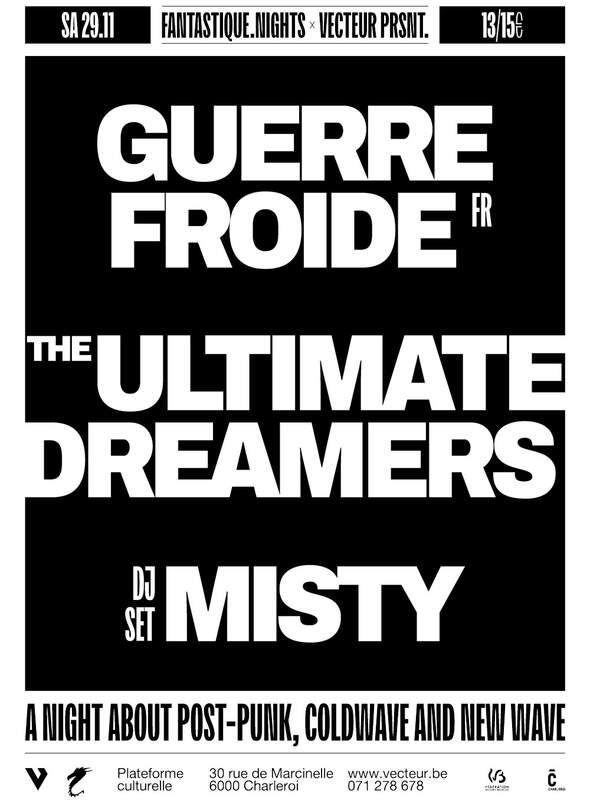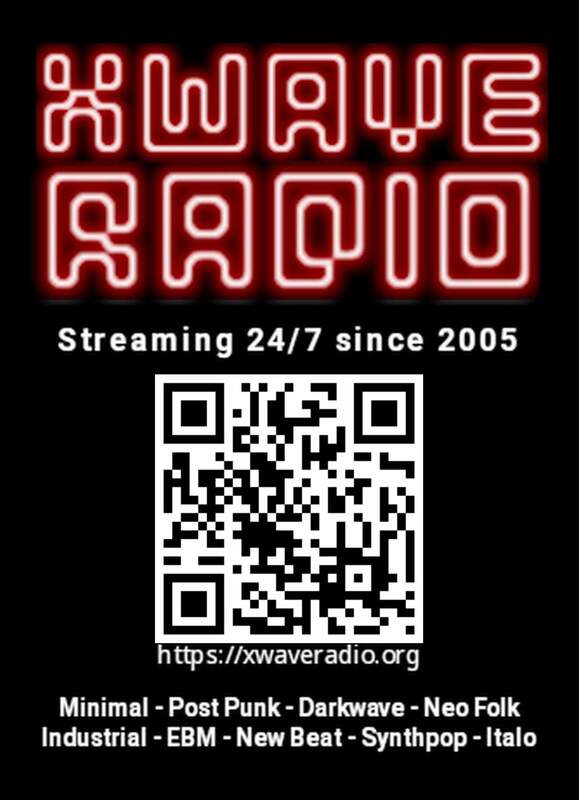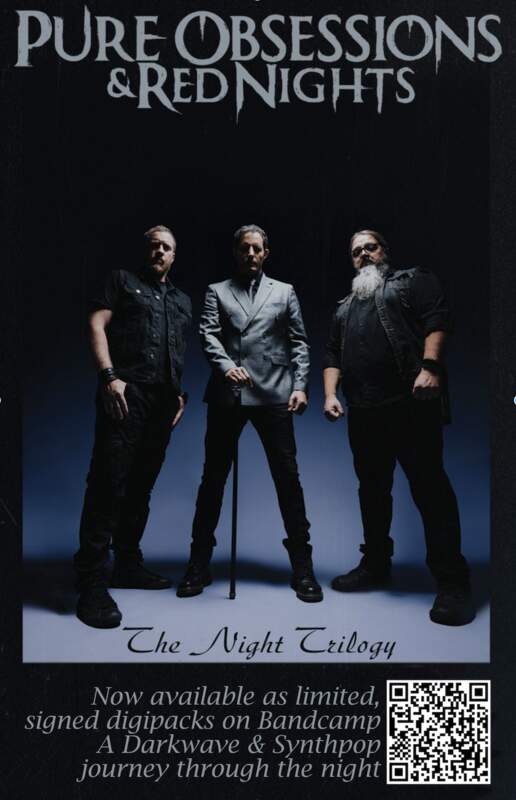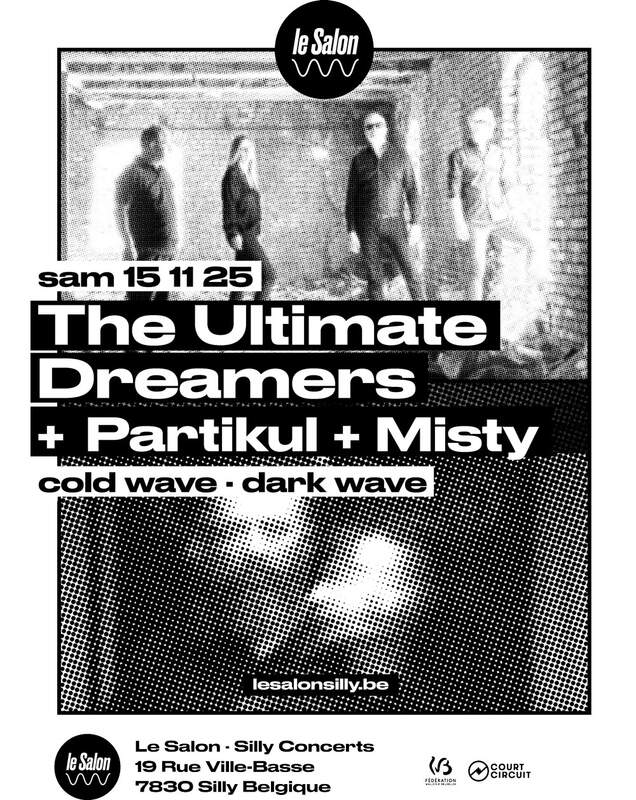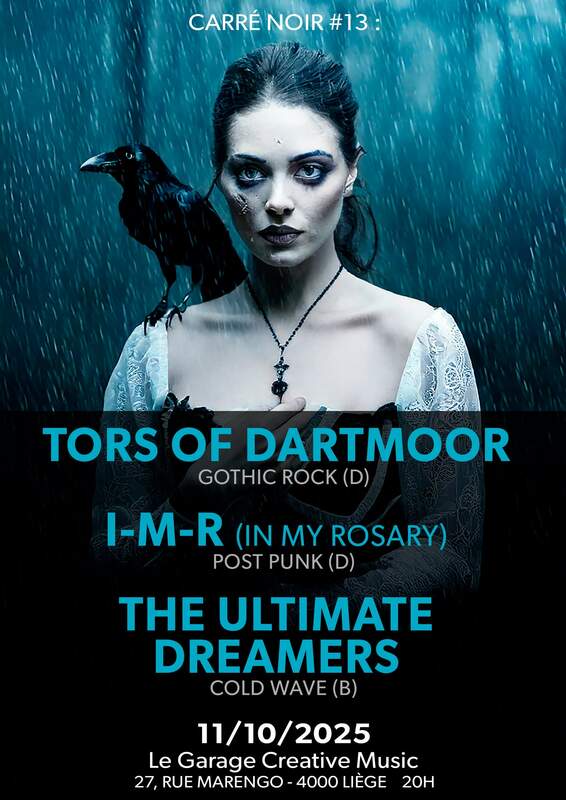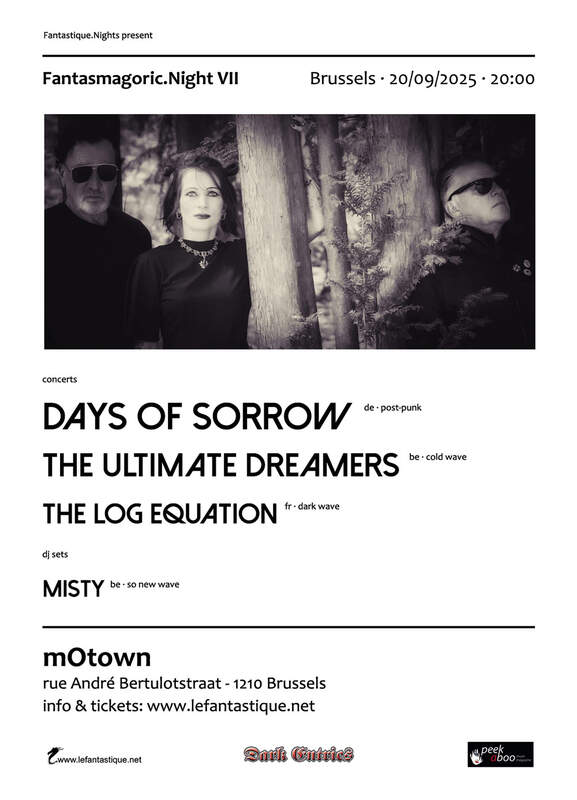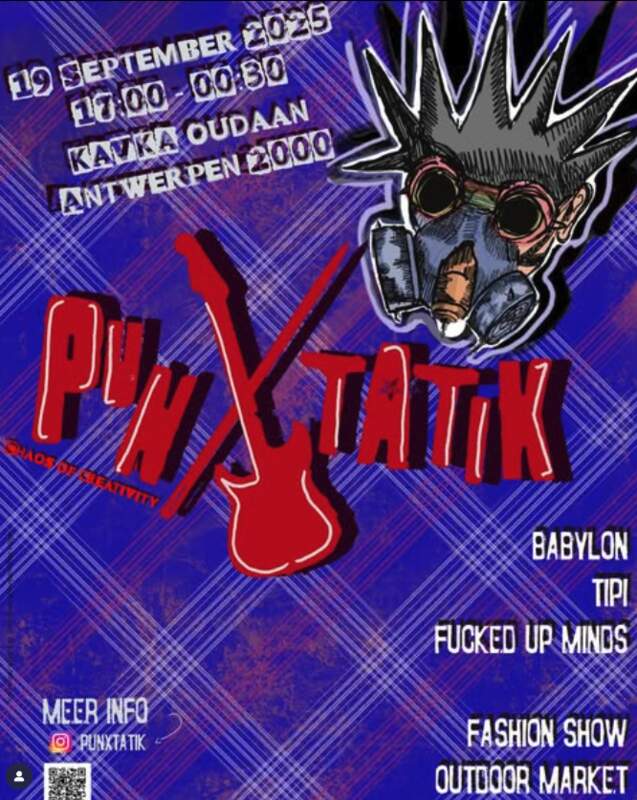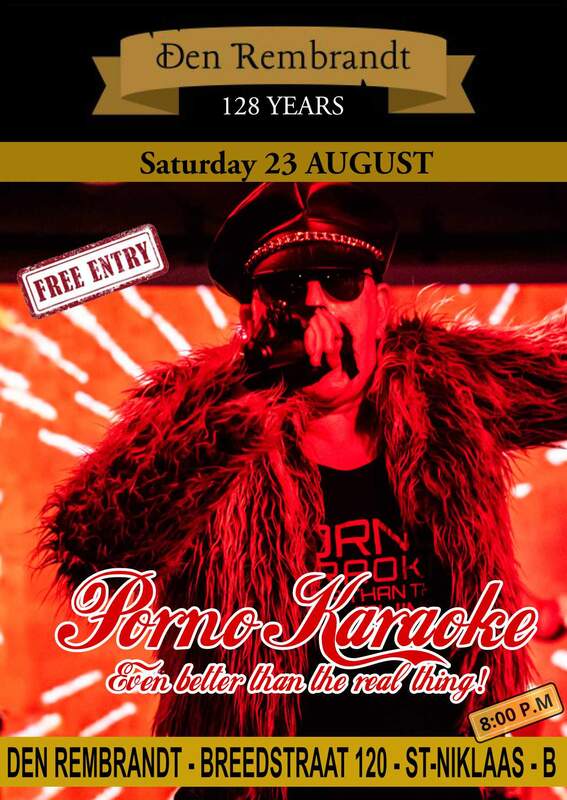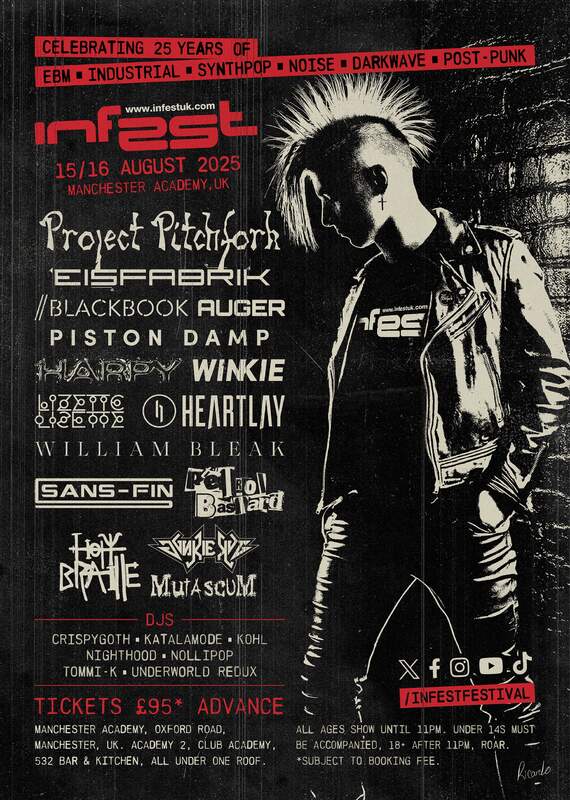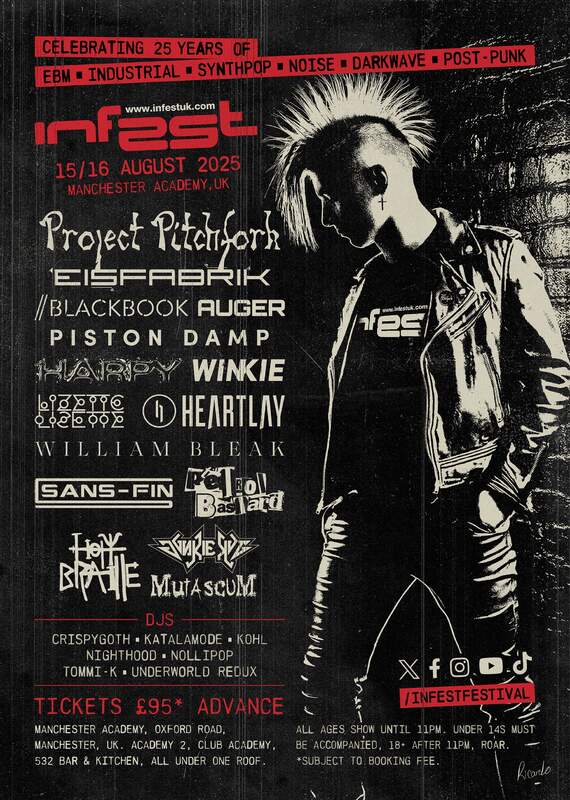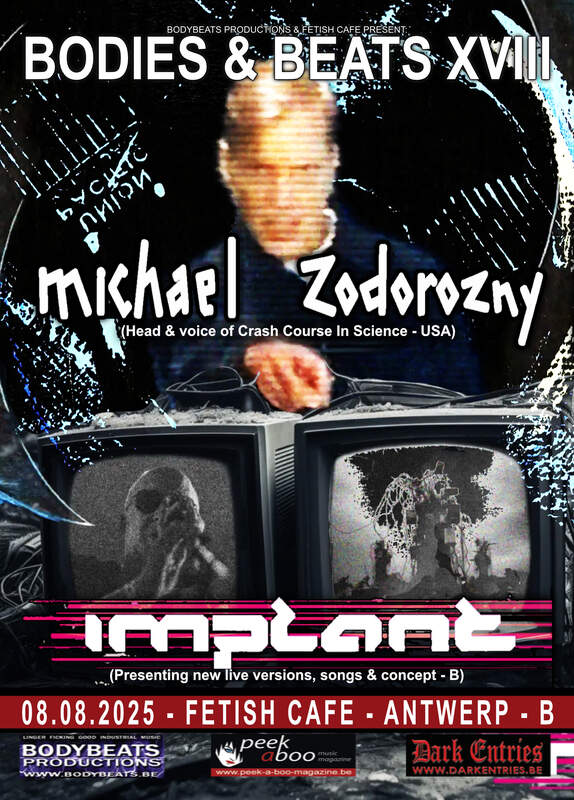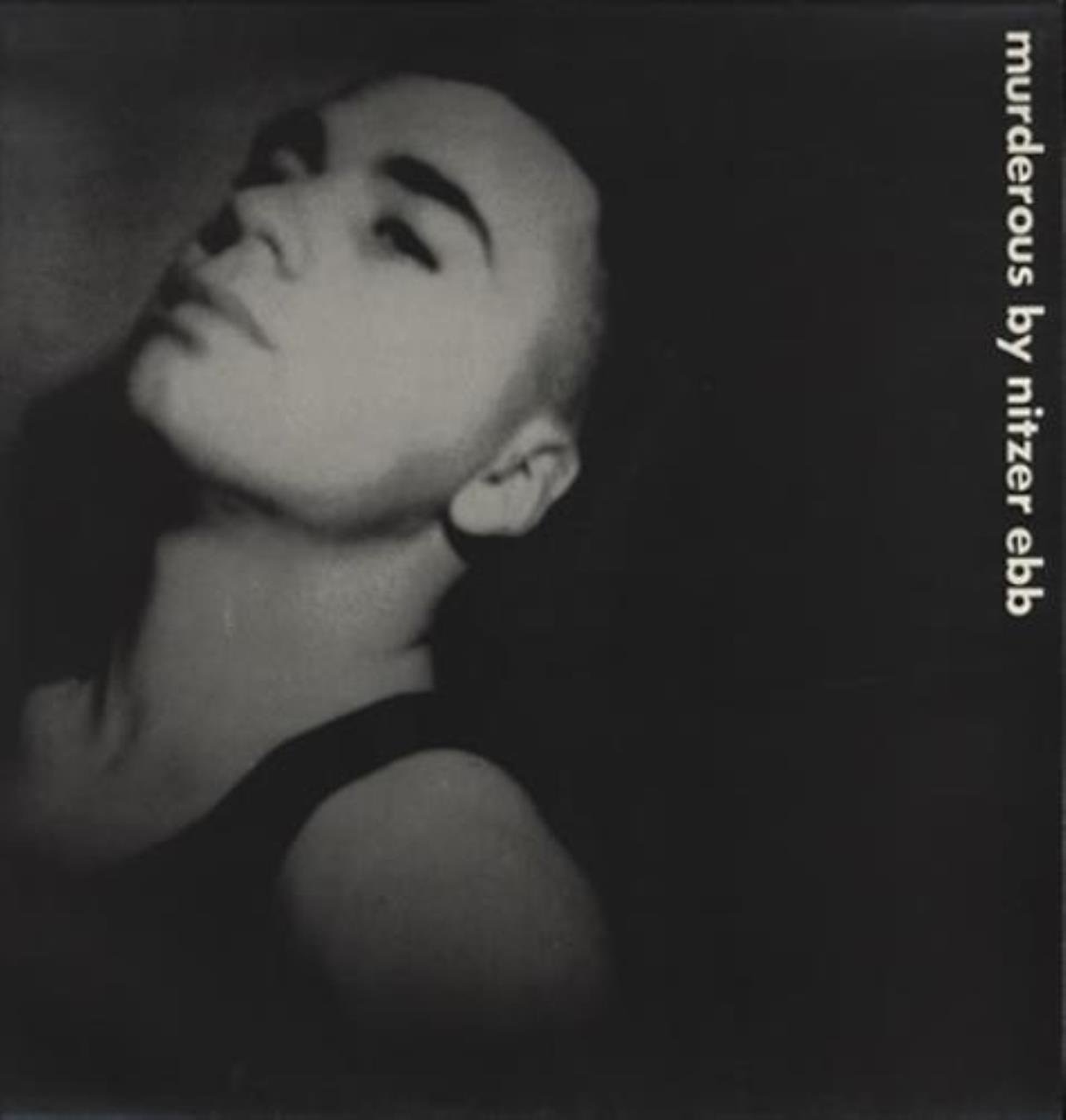
This month it’s 36 years since Electro / EBM heads Nitzer Ebb released Murderous!
This month it’s 36 years since the English Electro / EBM heads from Nitzer Ebb unveiled maybe one of their most famous and biggest dance-floor classics, Murderous (Mute Records, November 1986) ! A bomb of a song that turned out to be the advance single from what would become maybe THE NEB album of all time, That Total Age! An album we still had to wait for until May 1987 and which still can be found on various top-lists of the best industrial albums ever.
The B-side of this 7 "single had the up-tempo track Fitness To Purpose while the 12 " version had also the 'Repetition' version' of Muderous pressed on it.
Where is the youth?
Enjoy!
Murderous (Lyrics)
Where is the youth
Youth
Youth
Youth
Youth
Youth
Youth
It's time to know
It's time to live
It's time to know
It's time to live
Shout golden shouts
Shout golden shouts
Lift up your hearts
Shout golden shouts!
********************************************************NEDERLANDS*********************************************************
Deze maand is het ook alweer 31 jaar geleden dat het Engelse Electro/EBM heads van Nitzer Ebb met één van hun bekendste en grootste dansvloer-klassiekers uitpakten, Murderous (NEB 4). Het nummer werd eerst gereleased als 7" single op hun eigen Power Of Voice Communications maar al snel opgepikt en gereleased door Mute Records op zowel 7" als 12" Maxi-single in November 1986. Een bom van een nummer zo bleek, en als het ware de voorbode van misschien wel HET Nitzer Ebb album aller tijden, That Total Age! Een album dat pas in mei 1987 op ons losgelaten zou worden en inmiddels nog aktijd terug te vinden is op verschillende top-lijstjes van de beste industrial albums aller tijden. Op de b-side van de 7" single prijkte het uptempo Fitness To Purpose en op de achterzijde van de 12" kon men daarnaast ook de 'Repetition' versie van Muderous vinden.
Waar is de jeugd?
Enjoy!
“Autobahn” was released to an unsuspecting public in November 1974, it is day zero of electro, minimalist, ambient and synth-pop, the very moment which inspired the synthesizer-experimentations of the late-1970s and the new-wave sound which dominated the 1980s.
Not the first ambient-electronic style release, not even by Kraftwerk but it was the first successful one. The album even contained a surprise hit, an edited down version of the title track broke the top-twenty in the U.S and U.K in May 1975, this release marked the arrival of the most influential musical-force since The Beatles.
An album based on the concrete infrastructure of Germany, the Autobahn, Kraftwerk take us on a journey, from entering the automobile to speeding through the landscape to tuning the radio and all the time the monotonous electronic-beats mirror the repetition of the journey.
With treatments of vocoder-sounds and organic voices the only natural comparison to vocals appears here as the remainder of tracks are entirely instrumental, however, do not be mistaken for thinking this is a completely electronic affair as instruments such as flutes, violins and guitar appear throughout mainly contributed by Klaus Röder, where as Ralf Hütter and Florian Schneider structured the electronic development of the album.
This album is anything but aged, there is no deterioration in quality or style unlike some of the bands which gained inspiration from “Autobahn” and Kraftwerk as a unit.
From Bowie to Blondie, through to New Order and Siouxsie And The Banshees they all took direction from this point and into the future released by Kraftwerk.
Ralf Hütter – vocals, electronics
Florian Schneider – vocals, electronics
Klaus Röder – violin, guitar
Wolfgang Flür – percussion
Original 1974 Track Listing;
1.Autobahn
2.Kometenmelodie 1 ('Comet Melody 1')
3.Kometenmelodie 2('Comet Melody 2') 4.Mitternacht ('Midnight')
5.Morgenspaziergang ('Morning Walk')
Today it’s Halloween so it’s the perfect day to remind you of Ministry’s release of the single '(Every Day Is) Halloween'. Originally released by Wax Trax! Records as an non-album b-side for the Ministry “comeback” single 'All Day' after they left Arista Records. The remixed version of 'All Day', titled 'All Day Remix', was featured on Ministry's 1986 album Twitch. '(Every Day is) Halloween' did not make it on this album but was included one year later (1987) on Ministry's compilation album Twelve Inch Singles (1981-1984).
In 2010 '(Every Day Is) Halloween' was re-released as an 6-track digital EP by Cleopatra Records. Besides the original version this EP features also four remixes and one cover version.
Ever since it’s first release (Every Day Is) Halloween has been adopted as one of the anthems of the (American) Industrial and Gothic community.
(Every Day Is) Halloween (Lyrics)
Well I live with snakes and lizards
And other things that go bump in the night
'Cause to me everyday is Halloween
I have given up hiding and started to fight
I have started to fight
Well any time, any place, anywhere that I go
All the people seem to stop and stare
They say "why are you dressed like it's Halloween?
You look so absurd, you look so obscene"
Oh, why can't I live a life for me?
Why should I take the abuse that's served?
Why can't they see they're just like me
It's the same, it's the same in the whole wide world
Well I let their teeny minds think
That they're dealing with someone who is over the brink
And I dress this way just to keep them at bay
'Cause Halloween is everyday
It's everyday
Oh, why can't I live a life for me?
Why should I take the abuse that's served?
Why can't they see they're just like me
It's the same, it's the same in the whole wide world
Oh, why can't I live a life for me?
Why should I take the abuse that's served?
Why can't they see they're just like me
I'm not the one that's so absurd
Why hide it why fight it?
Hurt feelings best to stop feeling hurt
Denials, reprisals
It's the same it's the same in the whole wide world
It's the same it's the same in the whole wide
It's the same it's the same in the whole wide
It's the same it's the same in the whole wide world
Goth-pop artist Metamorph spins a gothic love story with their latest full-length album Kiss Of The Witch.
Metamorph shares a tale where twin flames are reunited, love wins and a magical kiss is meant to awaken us from this dystopian nightmare of our chaotic world, activating our superpowers, for a better future together for ourselves and the planet. Each song is a witchy world unto itself; sexy, romantic, intimate, with layers of symbolization.
Metamorph welcomes songstress Margot Day’s daughter and muse Julifer Day with her honeyed smoky vocals and heart-wrenching lyrics. The duo's voices entwine on the resurrected song “Empress”; a remake of the song by 80s goth band The Plague, a legendary New York band once fronted by Margot Day.
Day says: “Metamorph’s "Empress" has a timeless sentiment, where my voice and my daughters merge, where the past meets the present and makes a wish for the future”. “Empress” goes deep into the dark-eyed night – as Metamorph producer and alchemist Erik Gustafson said: “Why go black when you can go midnight?”.
Kiss Of The Witch was written and conceived by witchy singer & flutist Margot Day and produced by Cleopatra Recording artist & alchemist Erik Gustafson of Adoration Destroyed. Remixes by Spankthenun (Bandcamp version) and Xris SMack! (Mindswerve).
Kiss Of The Witch is available now on all digital platforms, including Bandcamp.
On this day, 45 ago, the Sex Pistols released their one and only official studio album ‘Never Mind the Bollocks, Here's the Sex Pistols’. It was released by Virgin Records on 28 October 1977. The album has influenced many bands and musicians, and the industry in general. In particular, the album's raw energy, and Johnny Rotten's sneering delivery and "half-singing", are often considered as game-changing. It is frequently listed as the most influential punk album, and one of the most important albums of all time.
By the time of its release, the Sex Pistols were controversial, having sworn on live TV, been fired from two record labels, and been banned from playing live in some parts of Britain. The album title added to that controversy, with some people finding the word "bollocks" offensive. Many record stores refused to carry it and some record charts refused to list its title, showing just a blank space instead.
Due in part to its notoriety, and in spite of many sales bans at major retailers, the album debuted at number one on the UK Album Charts. It achieved advance orders of 125,000 copies after a week of its release and went gold only a few weeks later, on 17 November. It remained a best-seller for over a year, spending 60 weeks in the top 25. The album has also been certified platinum by the RIAA. It has seen several reissues, the latest in 2017.
In 2006, it was chosen by Time magazine as one of the 100 greatest albums ever.
Never Mind The Bollocks - Here Are The Sex Pistols (UK edition 12 track LP)
A1. Holidays in the Sun 3:22
A2. Bodies 3:03
A3. No Feelings 2:53
A4. Liar 2:41
A5. God Save the Queen 3:20
A6. Problems 4:11
B1. Seventeen 2:02
B2. Anarchy in the U.K. 3:32
B3. Submission 4:12
B4. Pretty Vacant 3:18
B5. New York 3:07
B6. E.M.I.
Note: "Submission" was included with most, but not all, copies of the 11-track as a one-sided seven-inch single.


